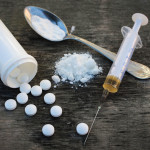On July 24, the House of Representatives approved a bill that would lift the 21-year-old national ban on federal funding for needle exchange programs, The Washington Post reports. The measure will allow AIDS service organizations and other facilities to distribute clean needles to intravenous drug users, thereby reducing the spread of HIV and other blood-borne infections among this population.
“This is the first time in over 20 years that we are on the verge of recognition by the federal government of the proven cost-effectiveness and impact of syringe exchange as a very important tool for prevention of HIV infection and viral hepatitis,” said Ronald Johnson, deputy executive director of DC-based advocacy group AIDS Action. “Allowing the local community to use federal funds is very critical to stopping these epidemics.”
However, according to the article, restrictions added to the bill—sponsored by Rep. David Obey (D-Wis.)—stipulate that the money cannot benefit any program that distributes needles within 1,000 feet of day-care centers, schools, parks, playgrounds, pools and youth centers. AIDS Action affirms that such restrictions would make it impossible to establish a needle exchange program in any part of DC, a city where at least 3 percent of the population is already positive.
“AIDS Action will have to continue to fight to remove the restrictions so DC can make its own decisions” on how to spend federal funding, said William McColl, the organization’s political director.
The Senate has yet to vote on the bill, but the Senate appropriations bill for the district approved earlier this month did not restrict needle exchange funding.
Advertisement
Advertisement
Advertisement






2 Comments
2 Comments